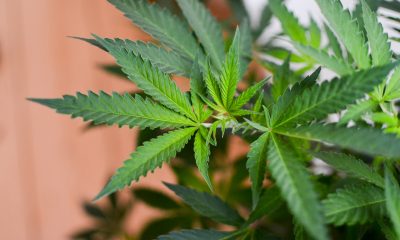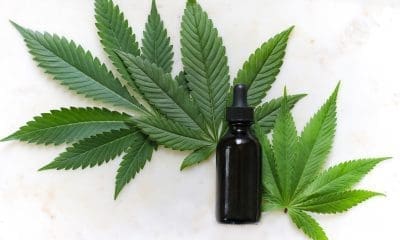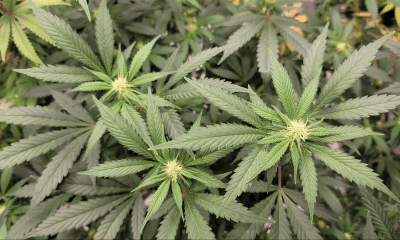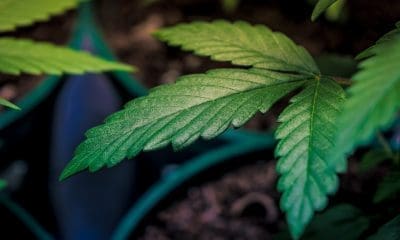Politics
Biden AG Pick Restates Pledge To Respect State Marijuana Laws, In Writing
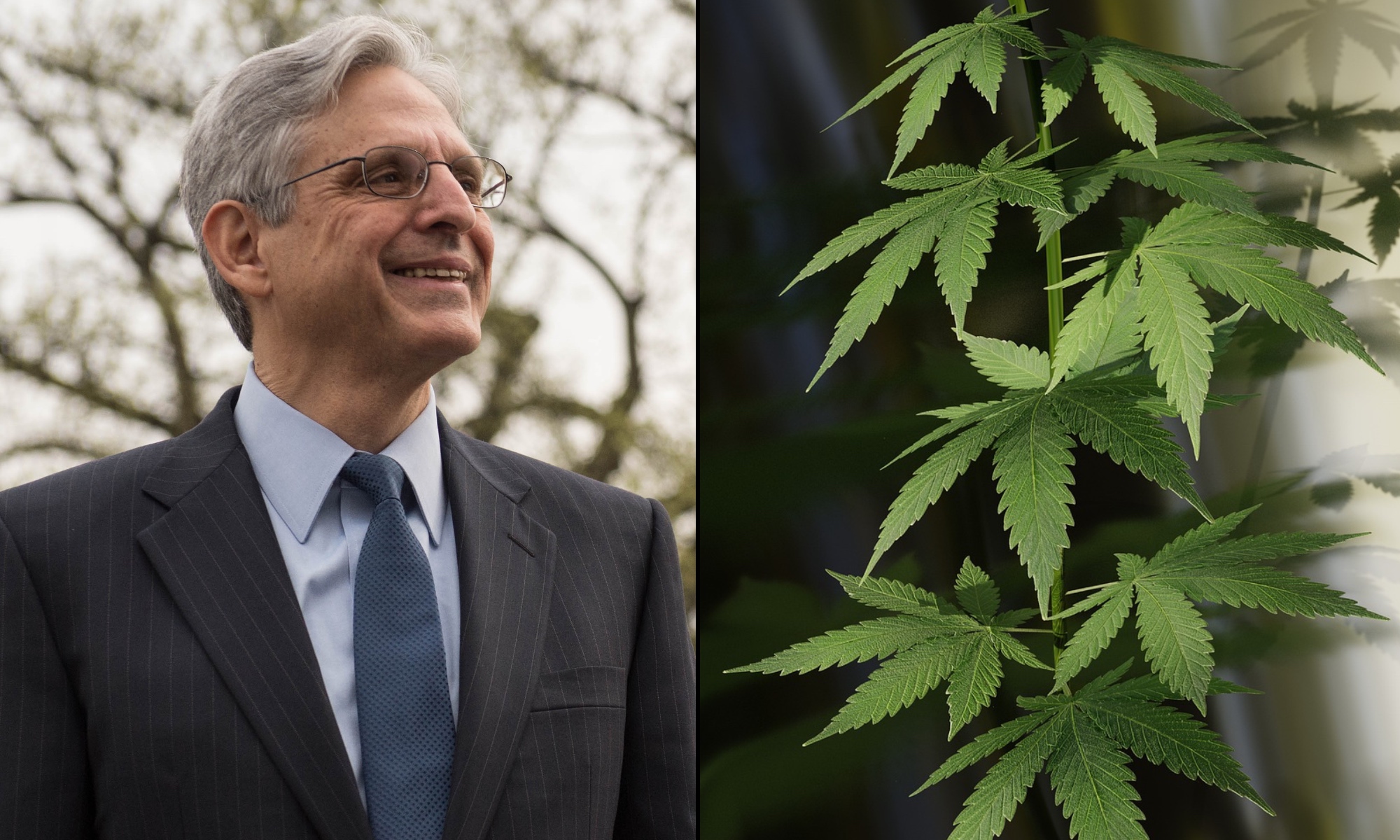
President Joe Biden’s nominee to serve as U.S. attorney general has reiterated in written testimony to multiple senators that he does not feel the Department of Justice should be using its resources to prosecute people who are acting in compliance with state marijuana laws.
In a series of responses to questions from lawmakers who followed up on last week’s committee confirmation hearings, Judge Merrick Garland made clear that, from his perspective, the government should be focusing on large-scale criminal enterprises that circumvent state legalization laws instead of going after people who are abiding by local cannabis policies.
He made similar comments during questioning before the Senate Judiciary Committee last week. The panel formally approved his confirmation on Monday, clearing the path to a full vote in the chamber.
“I do not think it the best use of the Department’s limited resources to pursue prosecutions of those who are complying with the laws in states that have legalized and are effectively regulating marijuana,” he said in response to a question from Ranking Member Chuck Grassley (R-IA) about how he would navigate the federal-state marijuana policy conflict. “I do think we need to be sure, for example, that there are no end runs around the state laws by criminal enterprises, and that access is prohibited to minors.”
That view is consistent with policies put into place under Obama—known as the Cole memorandum—and then rescinded by President Donald Trump’s first attorney general, Jeff Sessions.
Pressed on whether he generally supports efforts to decriminalize or legalize cannabis, the attorney general nominee didn’t give a specific answer but gave an answer focused solely on the harms of current punitive policies.
“Criminalizing the use of marijuana has contributed to mass incarceration and racial disparities in our criminal justice system,” he wrote, “and has made it difficult for millions of Americans to find employment due to criminal records for nonviolent offenses.”
Legalization advocates are pleased that the nominee has put his views about respecting state marijuana laws into writing.
“For all intents and purposes, Judge Garland’s responses indicate that he has no intention of curbing the progress being made in the regulation and consumer access of cannabis and for that, we are relieved,” Justin Strekal, political director of NORML, told Marijuana Moment. “Pending a successful confirmation, we look forward to working with him and his team to reimplement a policy similar to the Cole Memo and explore solutions to grant immediate relief to those who have suffered federal charges as Congress continues to negotiate on a comprehensive fix to end prohibition.”
Grassley also asked Garland what role he sees the Justice Department playing “in the changing landscape of marijuana legalization, decriminalization, and recreational use.”
“The Department of Justice has not historically devoted resources to prosecuting individuals for simple possession of marijuana,” he said. He then repeated his point about departmental priorities.
But while Garland’s responses reflect a friendly attitude toward cannabis policy as far as advocates are concerned, he did say in response to a question from Sen. Ted Cruz (R-TX) about prosecutorial discretion that “the Executive Branch cannot simply decide, based on a policy disagreement, that it will not enforce a law at all.”
Another Grassley question noted Biden’s ongoing opposition to federal legalization and support for decriminalizing cannabis possession and expunging prior marijuana records. He asked whether Garland sees “any contradictions” in that policy stance.
“As I testified at my hearing, it is important to focus our attention on violent crimes and other crimes that greatly endanger our society, and prosecutions for simple marijuana possession are not an effective use of limited resources,” the judge replied. “As I testified, we have seen disparate treatment in these prosecutions that has had a harmful impact on people and communities of color, including stymied employment opportunities and social and economic instability.”
Garland was also peppered with questions related to laws governing impaired driving from marijuana. He was asked by Grassley, Cruz and Sen. Marsha Blackburn (R-TN) about the issue.
Questioned about how he will support law enforcement agencies combat instances of impaired driving from THC, for example, he said “I have not had an opportunity to examine this public safety question,” and in confirmed, “I look forward to learning about it, and determining if the Department has programs or resources that could be helpful.”
He further stated that he is “not familiar with the technology that is available to accurately assess whether a driver has unsafe levels of THC in his or her system” in response to a question from Cruz.
“The Obama-Biden administration refused to enforce certain federal drug laws to avoid triggering mandatory minimum sentences enacted by Congress. Is this consistent with the rule of law?” the senator from Texas further asked.
“I believe that the Department should give discretion to its prosecutors to make the offense and the charge fit the crime and be proportional to the damage that it does to our society,” Garland wrote. “In addition, as President Biden has suggested, we should consider the elimination of mandatory minimums so that we, once again, give authority to trial judges to make determinations based on all of the sentencing factors that judges normally apply granting them the ability to do justice in individual cases.”
Garland, who was previously nominated by Obama to serve on the Supreme Court only to have his nomination blocked by Senate Republicans, also said during last week’s hearing that he thinks the enforcement of marijuana criminalization is the “perfect example” of how the criminal justice system is racially biased and disproportionately impacts communities of color. And because cannabis possession arrests can “follow a person for the rest of their lives,” he said the Justice Department should avoid prosecuting those cases.
These comments starkly contrast those of Trump’s first pick to head the DOJ, Sessions, who took actions on marijuana policy that are viewed as hostile by advocates.
Trump’s second attorney general, William Barr, maintained that Congress should take steps to resolve the state-federal marijuana policy conflict. But he did not make any definitive statements about the need to shift gears administratively, nor did he dedicate time while in office to recognize the racial disparities of cannabis enforcement.
Barr did allegedly direct the Justice Department’s Antitrust Division to carry out investigations into 10 marijuana mergers out of personal animus for the industry. A whistleblower who testified before a key House committee claimed the investigations were unnecessary and wasted departmental resources. But the assistant attorney general for the Antitrust Division later argued that the investigations were actually “consistent with protecting consumers’ access to cannabis products, not with animosity toward the industry.”
Separately, the Biden administration is instituting a new policy of granting waivers to some White House staff who’ve used cannabis. The Office of Personnel Management has also distributed a memo last week to federal agencies stipulating that admitting to past marijuana use should not automatically disqualify people from being employed in the federal government.
That’s a step in the right direction, as far as advocates are concerned, but they’re still hoping the president will come around on the issue of legalizing cannabis for adult use. The chances of that seem somewhat dimmed, however, given a new report that Vice President Kamala Harris is adopting Biden’s more limited policy platform on cannabis, despite sponsoring legalization legislation during her time in the Senate.
Harris has stepped back her calls for broad reform in recent months, opting instead to push for cannabis decriminalization and expungements in line with the president’s agenda. She spent significant time during her own presidential campaign making the case for federally legalizing marijuana, but that specific narrative has been largely abandoned since she joined Biden’s presidential ticket in August.
Decriminalization and expungements is the favored policy of Biden, who also backs medical cannabis legalization, modestly rescheduling the plant under federal law and letting states set their own policies on the issue.
All of this comes as Senate Majority Leader Chuck Schumer (D-NY), Senate Finance Chairman Ron Wyden (D-OR) and Sen. Cory Booker (D-NY) are working to introduce legislation to end the federal prohibition on marijuana. The trio has already met with advocates and stakeholders to gain input on what that legislation should include.
Read the full text of Garland’s Q&A with senators on marijuana policy issues below:
Grassley
The Justice Department, as part of the federal government, must enforce federal laws. An area where this has led to confusion is the enforcement of federal law in states where marijuana has been legalized. As you are aware, marijuana is a Schedule I drug under the Controlled Substances Act. a. Under your leadership, how will you navigate the Justice Department’s enforcement of federal law in states where marijuana has been legalized?
RESPONSE: As I suggested at my hearing, I do not think it the best use of the Department’s limited resources to pursue prosecutions of those who are complying with the laws in states that have legalized and are effectively regulating marijuana. I do think we need to be sure, for example, that there are no end runs around the state laws by criminal enterprises, and that access is prohibited to minors.
What do you see the role of the Justice Department to be in the changing landscape of marijuana legalization, decriminalization, and recreational use?
RESPONSE: The Department of Justice has not historically devoted resources to prosecuting individuals for simple possession of marijuana. As I suggested at my hearing, I do not think it the best use of the Department’s limited resources to pursue prosecutions of those who are complying with the laws in states that have legalized and are effectively regulating marijuana. I do think we need to be sure, for example, that there are no end runs around the state laws by criminal enterprises, and that access is prohibited to minors.
Do you support efforts to decriminalize or legalize marijuana?
RESPONSE: As I said at my hearing, criminalizing the use of marijuana has contributed to mass incarceration and racial disparities in our criminal justice system, and has made it difficult for millions of Americans to find employment due to criminal records for nonviolent offenses.
Legalized marijuana use may contribute to increased driving deaths. How will you support efforts by local and state law enforcement to combat driving under the influence of marijuana?
RESPONSE: I have not had an opportunity to examine this public safety question. If I am confirmed, I look forward to learning about it, and determining if the Department has programs or resources that could be helpful.
While Biden is opposed to legalization of marijuana, he supports decriminalization of possession and expungements of marijuana offenses. Do you see any contradictions in President Biden’s vision of maintaining the drug’s federally illegal status while decriminalizing minor possession and expunging prior conviction records?
RESPONSE: As I testified at my hearing, it is important to focus our attention on violent crimes and other crimes that greatly endanger our society, and prosecutions for simple marijuana possession are not an effective use of limited resources. As I testified, we have seen disparate treatment in these prosecutions that has had a harmful impact on people and communities of color, including stymied employment opportunities and social and economic instability.
Are you aware whether drug trafficking organizations continue to operate illicit marijuana markets in states with legalized marijuana? If so, what steps will you take to combat drug trafficking organizations that may use the cover of the legal marijuana market?
RESPONSE: As I testified at my hearing, I think we need to be sure that there are no end run around the state laws by criminal enterprises, and that kind of enforcement is important.
Cruz
Where marijuana is “legalized,” does law enforcement currently have technology to accurately determine whether a driver has unsafe levels of THC in his or her system for the purposes of driving? a. If not, what is the solution for this problem?
RESPONSE: Because I am not currently at the Department, I am not familiar with the technology that is available to accurately assess whether a driver has unsafe levels of THC in his or her system.
By most indications, illicit and large-scale marijuana trafficking activity has increased; if you are confirmed, what actions will you undertake to counter the trend?
RESPONSE: As I testified at my hearing, it is important to focus our attention on violent crimes and other crimes that greatly endanger in our society. Large-scale illicit drug trafficking should be distinguished from simple marijuana possession and should be vigorously investigated and prosecuted.
Is it consistent with the rule of law for federal prosecutors to refuse to prosecute individuals who violate federal drug laws because the President disagrees with those laws?
RESPONSE: As I testified at my hearing, it is important to prioritize the Department’s limited resources to prosecute violent crimes and other crimes that greatly endanger our society. Large-scale illicit drug trafficking should be distinguished from simple marijuana possession. But the Executive Branch cannot simply decide, based on a policy disagreement, that it will not enforce a law at all.
The Obama-Biden administration refused to enforce certain federal drug laws to avoid triggering mandatory minimum sentences enacted by Congress. Is this consistent with the rule of law?
RESPONSE: As I testified at my hearing, I support the policy I helped draft for Attorney General Reno, and that was furthered by Attorney General Holder, in which prosecutors are not required to seek in every case the most serious offense with the highest possible sentence. I believe that the Department should give discretion to its prosecutors to make the offense and the charge fit the crime and be proportional to the damage that it does to our society. In addition, as President Biden has suggested, we should consider the elimination of mandatory minimums so that we, once again, give authority to trial judges to make determinations based on all of the sentencing factors that judges normally apply granting them the ability to do justice in individual cases.
Blackburn
Although marijuana is still considered a federally controlled schedule one drug, some states have legalized marijuana use within their jurisdictions. Do law enforcement agencies at the federal, state or local level have universal access to technology that can accurately assess whether a driver has unsafe levels of THC in his or her system? If not, what solution do you recommend for the public safety problem of driving under the influence of marijuana?
RESPONSE: I have not had an opportunity to examine this public safety issue. If I am confirmed, I look forward to learning about this concern, and determining if the Department has programs or resources that could be helpful.
Top Washington, D.C. Lawmaker Files Competing Legal Marijuana Bill Days After Mayor Unveils Her Plan




